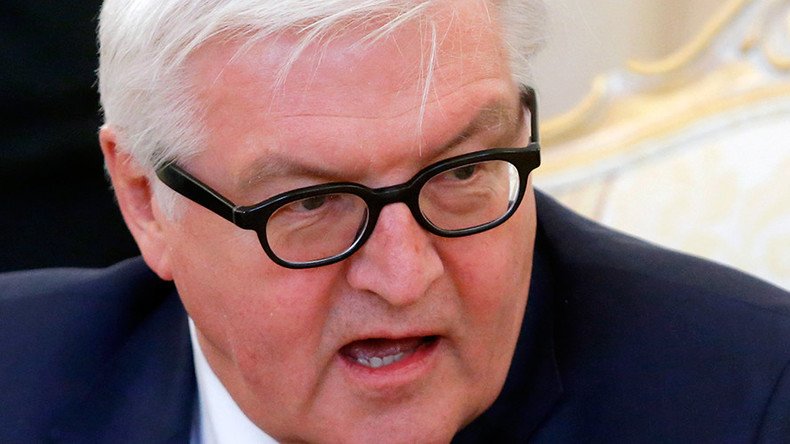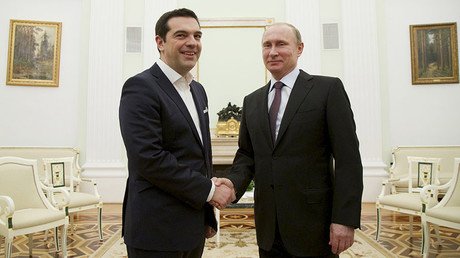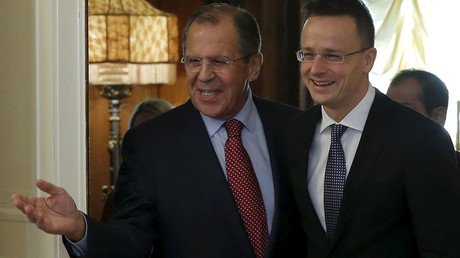Extending Russia sanctions ‘more difficult’ as resistance in EU grows – German FM

Continuing the economic sanctions against Russia will be “more difficult” this year due to growing opposition from some EU countries, the German foreign minister has said ahead of the G7 summit in Japan.
Growing dissent among EU member states on economic sanctions against Russia will be an obstacle to automatically prolonging them when they expire on July 31, German Foreign Minister Frank-Walter Steinmeier said on Thursday.
"We are aware that resistance in the EU to extending the sanctions towards Russia has increased," Steinmeier told Lithuanian news agency BNS, according to Reuters.
"It will be more difficult than it was last year to find a common position on this issue."
Germany wants to keep the sanctions in place until the Minsk peace arrangements on settling the conflict in eastern Ukraine are implemented, Steinmeier added.
Speaking at the G7 summit in Ise-Shima, Japan, Chancellor Angela Merkel also said it was “too early” to talk about lifting the sanctions, Reuters reported on Thursday.
Berlin has advocated the sanctions since they were introduced in 2014, even though German exporters and investors have a large interest in Russian markets, with the restrictions having an apparent impact on bilateral trade. According to the latest estimates by the German-Russian Chamber of Commerce (AHK), two-thirds of the 134 German companies working in Russia said they have suffered from the sanctions.
Earlier this year, leaders across Europe also reiterated that the sanctions should be lifted as soon as possible, citing mutual harm for economic ties and minimal political outcomes.
Just this month, Hungarian Foreign Minister Peter Szijjarto said Budapest disagrees with the automatic extension of the Russia sanctions. “We definitely cannot accept that a decision [on extending sanctions] was made behind the scenes, that is, we are against using an automatic procedure,” he told reporters during a meeting with Russian Foreign Minister Sergey Lavrov.
In April, members of the French National Assembly supported a resolution calling on the government not to extend the EU sanctions imposed on Russia. The restrictions have been “ineffective and dangerous” for the French economy, Thierry Mariani, a member of the center-right Republicans party who initiated the debate, told the Assembly.
Business communities in Italy, Greece and other EU countries have already protested against the restrictions being prolonged, claiming that they have become “hostages of the anti-Russia sanctions policy.”
The European Union imposed economic sanctions on Russia in July 2014 after its reunification with Crimea and amid conflict in eastern Ukraine. It then twice extended them in 2015. Brussels has accused Russia of what it calls “undermining Ukrainian sovereignty,” with Moscow denying any involvement in the crisis.














